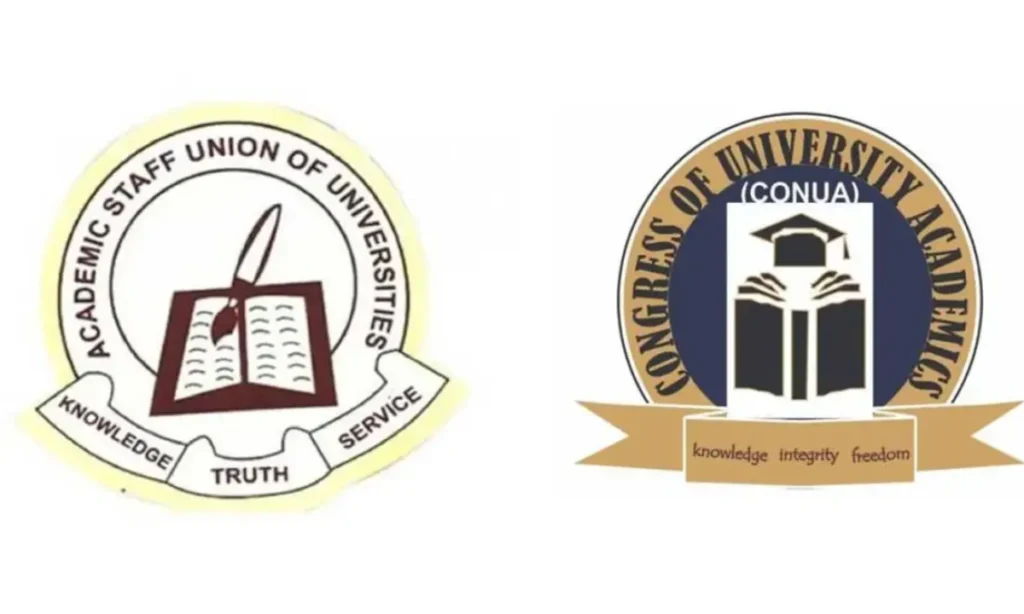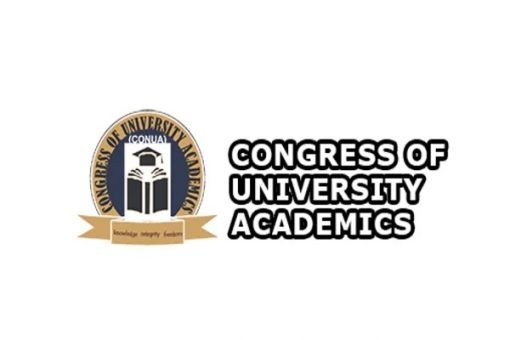In a firm and decisive move, the Congress of University Academics (CONUA) has publicly declined to join any planned strike across Nigeria’s universities, reaffirming its dedication to preserving academic stability and sustaining normal operations in higher education. The decision comes amid swirling rumours and social media chatter suggesting the union was involved in impending disruptions.
In a statement issued by its National President, Dr Niyi Sunmonu, CONUA asserted that it has not initiated any industrial action, nor does it intend to. According to Sunmonu, reports linking the union to strike plans are baseless.
“CONUA wishes to categorically clarify that it has not declared any strike action and is not part of any ongoing strike,” the statement reads.

Table of Contents
Rejecting Misreporting, Insisting on Clarity
The union’s leadership emphasised that media and social platforms had been propagating erroneous narratives about a strike initiative involving CONUA. In rebuttal, the union called on all concerned stakeholders—especially university communities and the public—to disregard such misinformation.
Rather than rest on denial, CONUA leveraged the moment to restate key principles: engagement over confrontation, negotiation over disruption. The union restated that its approach to systemic challenges in the tertiary education sector will remain rooted in constructive dialogue with government and academic stakeholders.
An Appeal to Members: Maintain Duties, Uphold Professionalism
CONUA’s leadership also issued a clear directive to its members across Nigeria’s universities: continue your work, remain visible on campus, engage students, and carry out your academic or administrative responsibilities professionally.
Sunmonu noted that there is presently “no basis to declare a dispute or embark on any strike action.” His admonition stems in part from structural developments within national framework agreements for the sector, where CONUA has been actively seeking inclusion in renegotiation processes.
Background: Exclusion From the 2009 Agreement Review and Reinstatement Efforts
One root of current tensions lies in the handling of the renegotiation of the 2009 Agreement—a foundational contract guiding conditions in the federal tertiary education sector. Sunmonu stated that when the renegotiation committee was formed in October 2024, CONUA was “conspicuously and deliberately omitted” from the process.
That exclusion triggered a formal protest by the union, eventually culminating in a meeting with the Minister of Education on September 11, 2025. During that meeting, the minister reportedly acknowledged CONUA’s concerns and pledged to expand the committee to include all academic unions within federal institutions.
In subsequent weeks, Congresses were convened nationwide between September 18 and September 24, where union members reportedly “unanimously reaffirmed CONUA’s principled stance” against any strike, insisting that dialogue—rather than disruption—should drive solutions going forward.

Call for Safety, Trust, and Academic Focus
Beyond procedural matters, the statement from CONUA also urged institutional heads—especially vice chancellors—to safeguard the well-being and rights of members of the organisation. This includes ensuring a safe environment for them to perform their duties without intimidation or interference.
To students, the union offered reassurance: focus on your studies, attend your classes, and pursue academic excellence without fear of interruption. CONUA positioned itself as a stabilising presence in a sector often prone to volatility from labour disruptions.
Sunmonu closed the statement by articulating a long-term vision: “CONUA’s unwavering focus is on building a sustainable, innovative, and productive academic environment that serves the interests of students, scholars and the nation.” He expressed gratitude for the cooperation of all stakeholders who support the union’s “constructive approach” to improving higher education in Nigeria.
Analysis: Why this Statement Matters
The decision by CONUA to reject strike action is significant for several reasons:
- Contrasting Postures Among Academic Unions
In Nigeria, academic unions frequently resort to strikes to press demands around funding, welfare, salaries, and working conditions. CONUA’s stance positions it differently. It is signalling commitment to continuity, which could appeal to students, parents, and policymakers fatigued by academic disruptions. - Leverage Through Inclusion
CONUA’s exclusion from initial renegotiation has been a source of tension. By formalising its role through government agreement, the union secures legitimacy and a seat at the table—shifting from protest to policy partner. - Public Relations Forward Strategy
By proactively rebutting misinformation, CONUA is controlling the narrative. It underscores transparency and responsibility, potentially strengthening its public credibility. - Risk Mitigation
Strike actions often backfire—students’ academic calendars suffer, institutional reputations decline, and less-privileged learners bear the harshest burden. CONUA’s refusal to strike signals a risk-averse approach in a volatile sector. - Responsibility to Students
Declaring that operations continue maintains confidence among students. For many, academic stability is foundational to their future plans; disruptions undermine trust in the system.
Potential Challenges Ahead
However, the path ahead is not without hurdles:
- Credibility Among Members
Some union members may feel that stronger action is required to address systemic deficits. CONUA will need to balance its restraint with meaningful advocacy to retain internal legitimacy. - Pressure from Other Unions
If other academic unions launch strikes, CONUA may face pressure to join to maintain solidarity or risk being perceived as passive. - Effectiveness of Dialogue
The government’s commitment to include CONUA in negotiations is a positive signal—but whether it translates into tangible reforms is yet to be seen. Persistent neglect or foot-dragging could test CONUA’s patience. - Public Expectations
The public may expect immediate results now that CONUA is formally part of negotiations. Failure to deliver could erode trust.

What This Means for the Sector
For higher education in Nigeria, CONUA’s posture may usher in a more stable negotiation climate. If constructive engagement replaces cyclical strikes, institutions can plan better, students can trust the system, and government agencies can engage more professionally.
Yet the success of this approach hinges on mutual commitment. CONUA must wield its inclusion responsibly, while government agencies must reciprocate with transparency, accountability, and genuine responsiveness to academic demands.
Join Our Social Media Channels:
WhatsApp: NaijaEyes
Facebook: NaijaEyes
Twitter: NaijaEyes
Instagram: NaijaEyes
TikTok: NaijaEyes
READ THE LATEST EDUCATION NEWS




